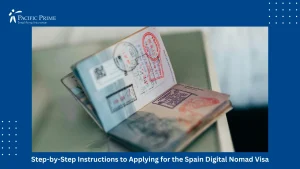Building Financial Literacy and Education for All
3 min read
College Piggy Bank With Graduation Hat. Education Piggybank
Financial literacy encompasses many essential skills and concepts, such as saving, investing, creating a budget, negotiating favorable loan terms, understanding impacts to credit and planning for retirement. Financial literacy is an integral component of Vermont Portrait of a Graduate, and research has demonstrated its direct effect on personal financial behavior (Lusardi & Mitchell).
Teachers in our network have noted that students with greater financial literacy tend to be more resilient when facing life’s obstacles.
Financial Literacy
Financial literacy is essential to individuals. Financial literacy refers to an umbrella term which encompasses everything from understanding basic savings methods like piggy banks to understanding retirement investment options.
Consumers today must navigate an increasingly complex world that includes mortgages, student loans, health insurance plans, credit cards and self-directed investing products. By increasing financial literacy levels among themselves they can better manage debt, increase wealth and secure themselves financially in the future.
No matter their educational opportunities, many young people still struggle to manage their finances properly and end up incurring student debt, incurring unmanageable car payments or not saving enough for retirement. This financial strain often causes stress that leads to poor health and missed opportunity – individuals weighed down with debt are less likely to invest in themselves and their future education; as a solution schools should incorporate more personal finance topics that allow students to take control of their lives.
Personal Finance
Financial literacy involves understanding basic concepts like income, spending, debt, and savings. Without such an understanding of personal finance, individuals may make poor choices that lead to excessive debt levels and limited savings – potentially undermining long-term security and economic wellbeing.
Financial literacy is crucial, enabling you to afford what you want without going into debt or living beyond your means. Furthermore, having money management skills allows you to save for future needs such as buying a house or retiring comfortably.
Learning personal finance can be complex. That’s why we must increase financial literacy education in schools for every student regardless of where they live or their income level, including budgeting, investing, retirement planning and insurance topics. If they learn these fundamentals early, the better off they’ll be at managing their funds throughout their lives – which will lead to financial independence!
Financial Planning
Financial literacy empowers people to make sound financial decisions that lead to a sense of financial security and well-being. It encompasses knowledge about saving, investing, spending, debt management and credit as well as being able to plan ahead financially for important events like paying for college fees, buying a house and retirement savings plans.
People with limited financial literacy are at increased risk of predatory lending and other detrimental practices that may have lasting repercussions for their finances and quality of life. This is particularly prevalent among young people, Black/African American households and Hispanic/Latino households living in poverty as well as individuals living on public assistance.
Financial experts provide an abundance of resources for anyone seeking to expand their financial savvy, from educational courses and books to reliable websites and professional advice from advisors. Educators can incorporate many of these resources into the classroom curriculum as well as encourage open discussions and hands-on activities such as guest speakers, personal finance tools and role-playing exercises which connect learning with real life experiences.
Budgeting
Budgeting with students can help them develop an understanding of financial flows and outflows, which in turn allows them to keep spending under control, avoid debt and save for short or long-term goals.
Expense management is also crucial to healthy spending habits and living within one’s means. To do this effectively, strategies like tracking spending, eliminating unnecessary expenses and prioritizing essential ones should be employed.
Education on insurance and interest rates is crucial in order for students to make educated financial decisions for themselves and their futures. A finance word wall or inviting guest speakers who share their stories about personal experiences and challenges are ways in which this can be accomplished.
Financial literacy equips individuals to manage their finances with confidence and self-reliance, leading to monetary stability, less stress and an enhanced quality of life. Financial literacy education can be delivered in various forms including classroom learning sessions, counseling services or coaching and technology-based interventions; for best results it should begin early and continue throughout life.







